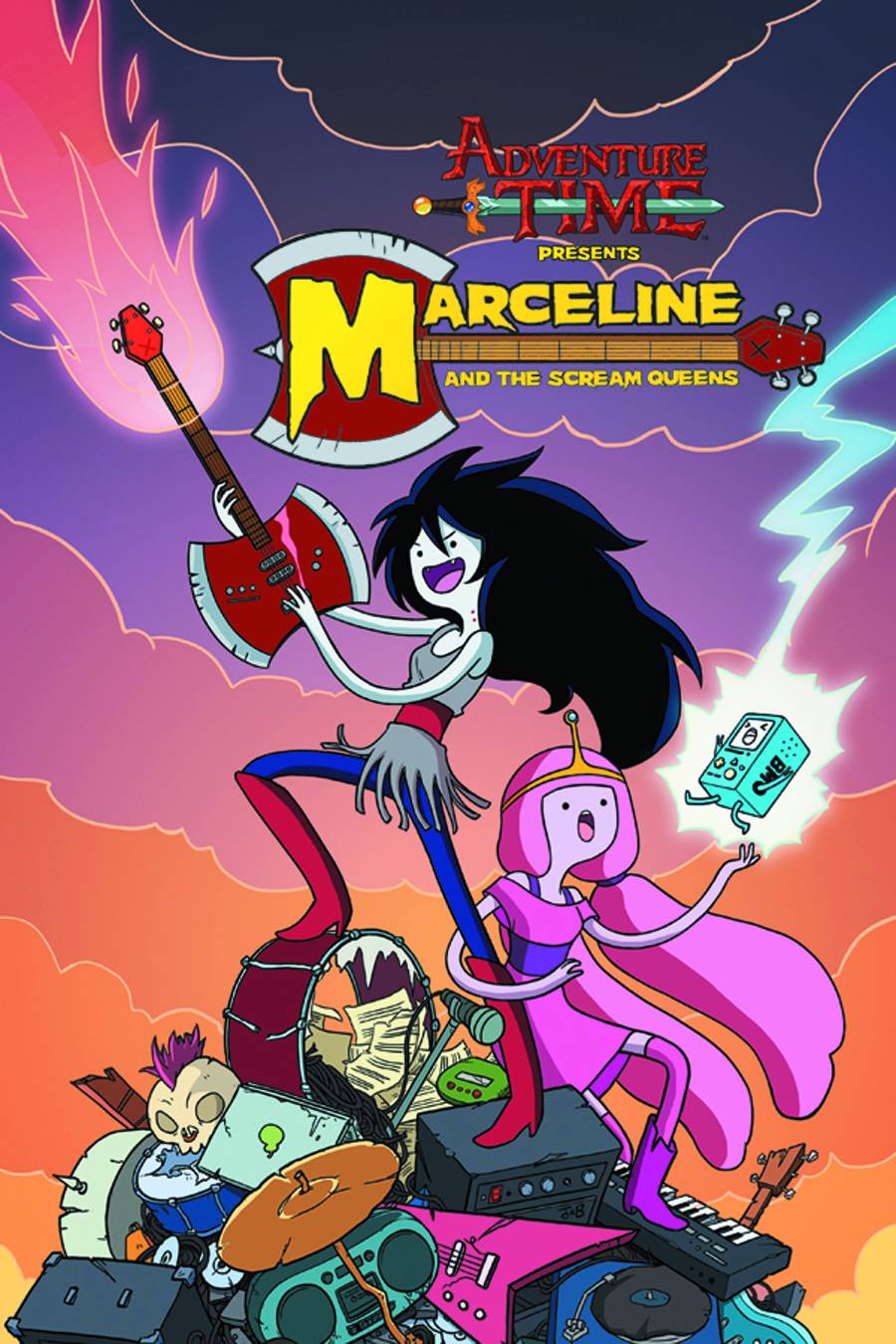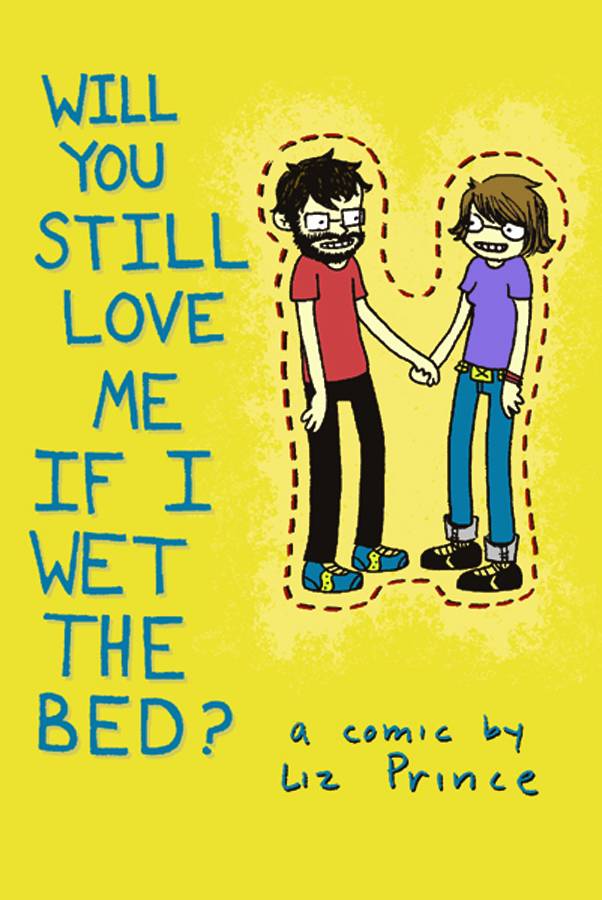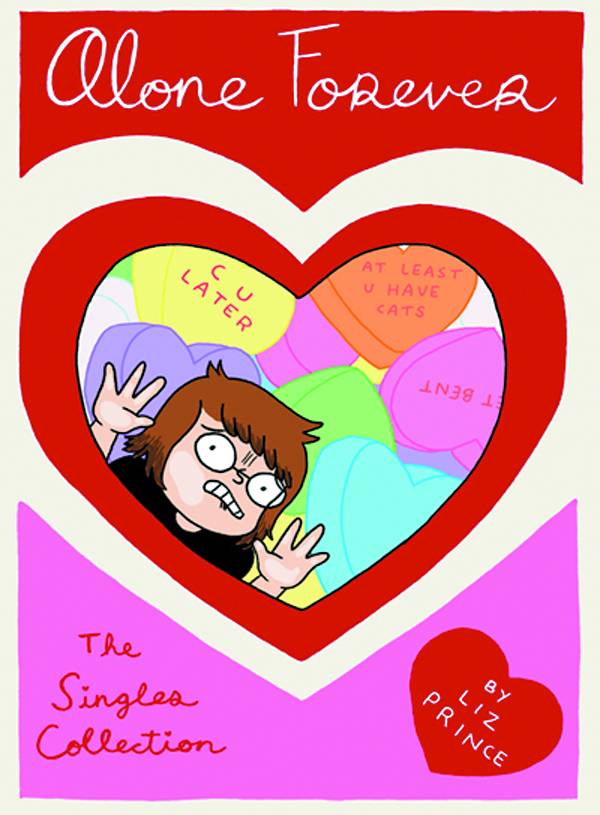Women in Comics Month: Liz Prince
May 02, 2014
It's Women in Comics Month on PREVIEWSworld.com and and in the pages of the May PREVIEWS catalog!
We are happy to be able to talk with Liz Prince about her work in the comics industry and her love for comics!
 |
PREVIEWSworld: Please introduce yourself! Tell us where you currently work and what you do in the industry.
Liz Prince: Hello, my name is Liz Prince: I've been an autobio comic artist for the last 15 years. I self-publish comics and zines, and have had books put out by Top Shelf Productions.
PREVIEWSworld: How long have you been working with sequential art? What titles, companies, and creators have you worked with over your time in comics?
Liz Prince: I have been drawing comics in earnest since I was in 6th grade, which was back in 1993! I have mostly built my career around doing everything myself: writer, artist, even sometimes publisher. I've done stories that have been published by Top Shelf Productions, Adhouse Books, Vice Magazine, and Tugboat Press, as well as an array of micro-publishers. I also had the pleasure of drawing a comic for Boom's Adventure Time spin-off "Marceline And The Scream Queens" (MAR130946). I've done several covers for their various AT books as well.
 |
PREVIEWSworld: How did you get interested in comics? How did you find your way into working with larger companies?
Liz Prince: I honestly can't remember a time in my life where I wasn't obsessed with comics. From the age of 5 I knew I wanted to work with cartoons in some way, and when I discovered comic books at the age of 8 I knew I had discovered my medium. Self-publishing was the stepping-stone that I used to get my work into the hands of publishers like Top Shelf; I believe it shows dedication to comics beyond wanting recognition, which is important for a publisher to see.
PREVIEWSworld: What's your current project? What're you reading right now?
Liz Prince: I am putting the finishing touches on my first ever graphic novel, a book called Tomboy, which is coming out from Zest Books in September. It is a memoir about growing up with gender identity issues, and the bullying and self doubt that comes along with it. It think it is a good mix of funny and heartbreaking; hopefully everyone else will feel the same way!
I just got some Cul De Sac collections out of the library because I've never read that strip before, but I've been revisiting comics that are written in strip format (like Lynda Barry's older work). I am also looking forward to the new Jimmy Gownley book "The Dumbest Idea Ever" (DEC131190), which also showed up at the library for me.
PREVIEWSworld: In your opinion, how has the comic book industry evolved in terms of gender?
Liz Prince: Right now is a very exciting time in comics: a lot of barriers are being broken, and people are paying a lot more attention to ways to be more inclusive of women in the wider realm of comics. I have to admit that my knowledge of women in "mainstream comics" (as in, superhero genres, etc.) is very slim, because I have personally never been too invested in the tights and capes stuff. Indie comics has always had a female contingent, but it's also always been "outside" of the "mainstream", and has a smaller reach, but even so, there are more female creators active, and being recognized for their contributions today than there were 10 years ago when my first Top Shelf book was published.
 |
PREVIEWSworld: What stereotypes do you see surrounding women in comics? How could people of all genders go about breaking those stereotypes?
Liz Prince: I don't know if I see what I would call a "stereotype" in play, as much as there is an assumption that our experience, as female creators, is distinctly different from those of our male counterparts. I'm looking forward to the day when mention of me as a creator is not preceded the delineation that I am a woman, because that implies that my work is different or that my fan base is different or that my overall experience is different because of my gender; all of which may be true, but until a male gets asked how gender has effected his experience in the industry, then it's not an equal playing field.
PREVIEWSworld: Have you noticed a trend in the type of comic books women buy? How do you want to see women represented in comic books 10 years from now?
Liz Prince: I haven't noticed a trend, per se. I personally know women who dabble in all the genres: they'll read a photocopied diary comic and follow it up with the newest issue of X-Men. I think it's dangerous to assume someone's level of interest in something based on their gender. I do like that there are publishers who are making a real effort to publish work by female creative teams with strong female protagonists, and that they are marketing them to a younger audience, to invite girls into comics while they are young (I'm thinking specifically of Scholastic and Raina Telgemeier's books, and the new Boombox series Lumberjanes).
I want to see women represented as just artists, writers, editors, letterers, colorists, publishers, what-have-you without having the fact that they are women be somehow surprising.
PREVIEWSworld: What do you feel the benefits are for the larger industry by having a better mix of genders at all levels of comics production? Did you have a mentor or a hero in the industry?
Liz Prince: Promoting equality at all levels is key: having women who are on the editorial staff, as well as on the creative end, just levels the playing field, and that needs to happen. There are too many "gatekeepers" in comics, and we need be populating as many facets of the business as we can people who can give a better perspective on alternative experiences. That should go for Queer, Trans, and People of Color as well; we should be inviting those perspectives into the greater consciousness of this industry, not just on the fringe or alternative markets.
There are still some creators who's work is monolithic to me, but I try not to put people on a pedestal. In a lot of ways I feel like I connect more with zine culture, which works hard to not have "special guests" and people of elevated status at zine fests. It takes are more "all creators are important" approach, which I find more inviting.
 |
PREVIEWSworld: If you could give advice to any aspiring editors, executives, writers, or artists, what two things would you tell them?
Liz Prince: 1. You can't work in comics for anything other than the love of comics. If you don't love comics, it shows in your work, and comics won't love you back.
2. All comics are a benefit to comics. I've heard too many people say over the years "so-and-so's work is RUINING comics" and the fact is that no one person has the power to change the course of comics forever. Any book or webcomic or newspaper strip that gets someone interested, and could lead to them reading more comics is a good thing, even if you don't personally like the artist or the work. The more people who are making comics the more power we have.




